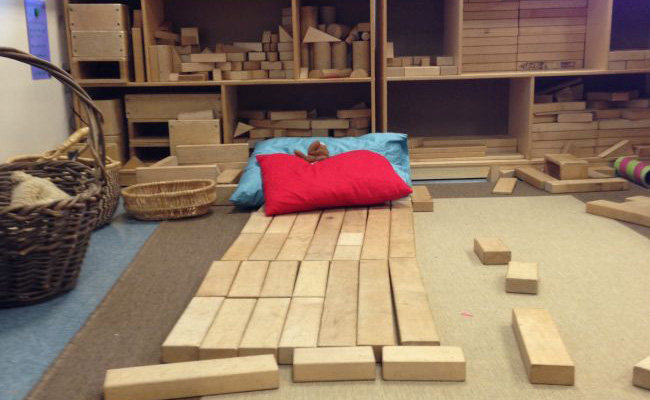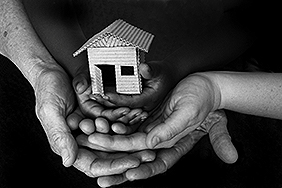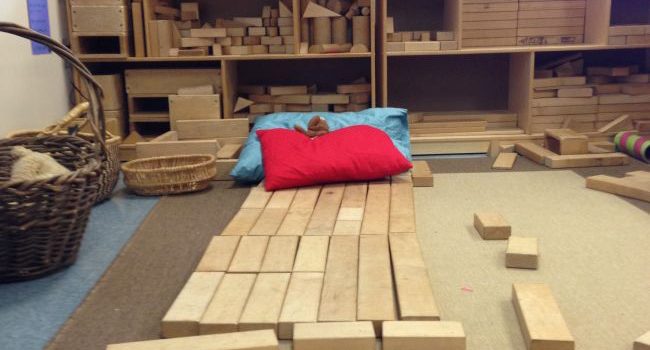The subject line was irresistible: “Early Childhood Pushes Up.” The Teachers College Record, a hotbed of radical critique, had delivered another gem to my inbox. Here was a scathing commentary on Obama’s “Cradle-to-Career” education policy.

“Wish you hadn’t moved to Australia,” I emailed Jeanne Marie Iorio, a senior lecturer at Victoria University, in Melbourne. She’s co-author of the aforementioned work, with Clifton Tanabe, who hasn’t left the United States, but offers perspective from the periphery, at the University of Hawaii, Manoa.
Their thesis is sound: School readiness, a state we so avidly seek, has created a chain (in all senses of the word) between our youngest students and the labor force, reinforcing the idea of children as commodities. This market-driven, utilitarian strategy has moved up into secondary and higher education:
As a result, this process is tilted away from the more traditional aims of self-actualization, appreciation, and happiness. It is in the ability to check off a box of measurable outcomes, assurance of accountability in education across the levels, evidence that monies supporting public education are well-spent creating people ready to contribute and perpetuate the status quo.
Touché.
Iorio and Tanabe duly note how readiness dominates early childhood policy and practice in the United States:
Curriculum, standards, teacher education programs, interventions, parent education, assessment, state-funded 4-year-old programs, and privatization are just the beginning of policies and practices created and implemented all in the name of readiness…
But what is this thing called readiness? The definition is “murky,” as they and others have observed. How do you know if a child is prepared—and for what?
Teachers and parents have been arguing about this for decades, the former arguing for social-emotional skills, the latter pushing for academic mastery. In my travels through the literature, I came upon a classic survey conducted in 1995, five years after the first George Bush (granddaddy of No Child Left Behind) declared universal school readiness a national goal in his State of the Union address. The surveyors divided their work into two clusters of behavioral and school-related items. Included in the first category were the ability to verbally communicate needs, wants, and thoughts; take turns and share; display enthusiasm and curiosity in approaching new activities; and sit still and pay attention.
The second listed proficiency with pencils and paintbrushes (ah, those rapidly vanishing pre-digital implements), counting ability (up to 20 or more), and knowledge of the letters of the alphabet. Both groups converged on the need for well-honed communication skills and positive approaches to learning. But stark disagreement surfaced on the question of the academic outcomes. The percentage of parents who rated them very important or essential ranged from six to eight times greater than that of teachers.
Alas, our obsession isn’t yielding the desired results. The masters of industry continue to kvetch, as they have for years, about the scarcity of well-prepared workers. Rex Tillerson’s lament, captured by Peter Elkind in Fortune this month, is a case in point. The Exxon CEO had expressed his frustration at a panel discussion in Washington, D.C. in 2014. “I’m not sure public schools understand that we’re the customer—that we, the business community, are your customer,” he said. “What they don’t understand is that they are producing a product at the end of that graduation.”
Iorio and Tanabe trace this back to kindergarten and the readiness obsession:
A recent survey by the Association of American Colleges and Universities… including 613 students at public and private two-year and four-year colleges as well as 400 employers, indicates students are not ready for work. But what is interesting is the very skills they hope for their employees are quite far from the readiness skills expected under the readiness chain. Employers expect their employees to be innovative/creative, use critical/analytical skills, analyze/solve complex problems, apply knowledge to the real world, and be aware of the world beyond the U.S. (just to name a few).
This is not surprising when kindergarten readiness is plagued with a list of academic skills like identifying rhyming words and the alphabet. Companies like LeapFrog offer lists of readiness skills to educate the public as well as products to achieve this readiness. A Kindergarten Readiness App is available for download to your iPhone or iPad, ensuring development of early literacy and math skills.
To avoid commodity status for students, Iorio and Tanabe propose a major revamping of higher education, “creating spaces for students to challenge assumptions around expected ideas”:
Instead of relying on readiness, we suggest viewing students as capable and through the lens of competence, expecting them to engage in actualizing capacity and taking on responsibility. Under this view, students become responsible for their lives and the well-being of the communities they live in locally and globally.
I’m all for it. But why begin with higher education? It’s way too late. This process of reimagining must start with kids. They grow into active, innovative, and productive citizens through play, hands-on investigation, and engagement with their peers and adults. Early childhood, not the university, is ground zero for democracy.


Finally someone focusing on what really matters. Thank you
Thanks for this article. I shared it on LinkedIn.
Thank you for putting these thoughtful and thought provoking ideas into the world. I could feel my heart singing as I read ideas that accorded so well with what I believe.
Love Jeanne Iorio and Clifton Tanabe! True advocates of ECE!